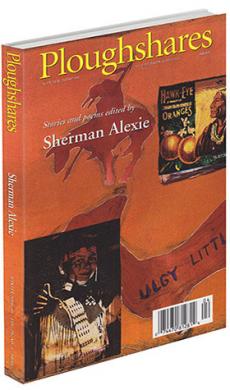rev. of Winter Range by Claire Davis
Winter Range
A novel by Claire Davis.
Picador, $23.00 cloth.
Reviewed by Fred Leebron.
In
Winter Range, Idaho writer Claire Davis offers a debut novel that effectively evokes small-town life on the Montana range and culminates in a breathtaking series of artfully constructed calamities. Predominantly from the third-person intimate points of view of the three central characters, Davis explores issues of alienation, love, and loss against a backdrop of drought, animal suffering, and rural bankruptcy.
Ike Parsons, a fortyish Milwaukee cop, falls for a younger woman who hails from a ranching family farther west. He pursues her home to Montana, where they’re married, and then, due to a scandal, he is quickly elected sheriff. His first year on the job is the “year of big snow,” and alongside the usual DUIs, domestic squabbles, and juvenile delinquents, he must confront a town reeling from a hardscrabble existence in a declining economy and lousy ranching weather. While the novel opens with a kind of “morning in America” glimpse of sunny, snowy, delightfully human days, the town and its people swiftly descend into backbiting and doubletalk, as they try to figure out what to do with loner Chas Stubblefield’s starving herd of cattle.
Pattiann Parsons, as Ike’s wife and Chas’s ex-girlfriend, finds herself caught between two worlds: the pragmatic and empathic vision of Ike’s way of law enforcement, and the anger and alienation of Chas’s view towards government, banks, and outsiders. Passed over by her father for the future inheritance of the family ranch and unable to realize any alternative life in Milwaukee, Pattiann is just as liable to sympathize with the ranching failure endured by her old flame as with the estrangement endured by her new husband. As the story progresses, intimate glimpses of these three characters provide insight into just how many angles of perception are in play. “We’re two of a kind, you and me,” Chas tells Pattiann. “Two sides of the same coin — your daddy trained you for what you can’t have, and mine left me what he didn’t prepare me for.”
Eventually, Ike succeeds in his humane plan to put down Chas’s sickly cattle, but this approach only provokes Chas to an increasingly wrathful resentment and a rage that strikes out for any outlet, including pouring gasoline inside a banker’s car and killing the town’s dogs with rat poison. The heart-stopping denouement transforms what was a relatively quiet and intricate treatment of the ills of contemporary ranching into something like a new breed of Western, replete with a car chase, an airborne elk, and an old-fashioned shootout.
At times melodramatic and even sentimental, but always entertaining and clearly written,
Winter Range offers a spectrum of moments that will agree with any reader.
Fred Leebron’s most recent novel is Six Figures
(Knopf). New stories of his appear in DoubleTake, TriQuarterly, and Tin House,
as well as the current Pushcart Prize: Best of the Small Presses.

